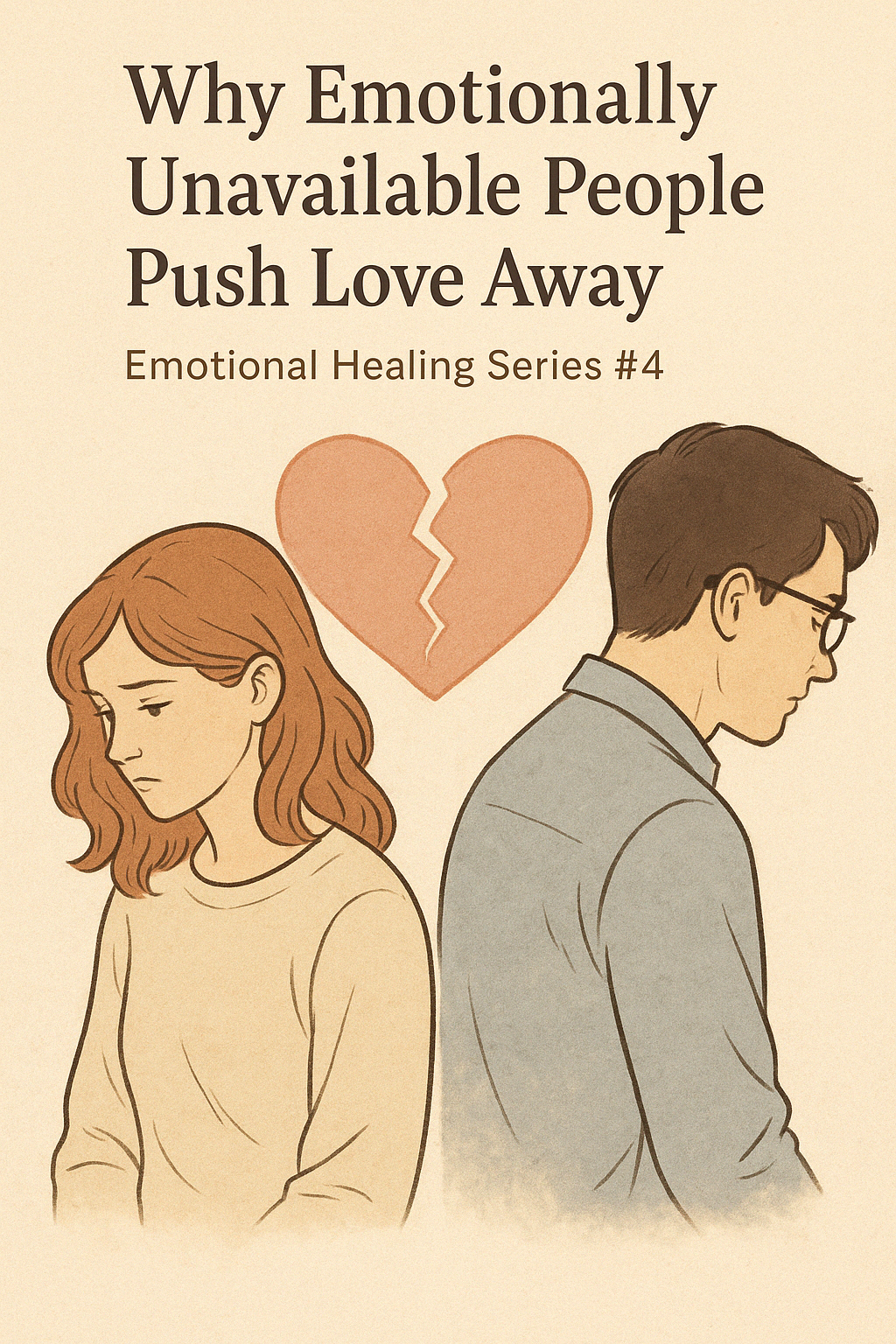Why Emotionally Unavailable People Push Love Away (Emotional Healing Series #4)
Why Emotionally Unavailable People Push Love Away (Emotional Healing Series #4)
Love is what we all crave — connection, intimacy, and emotional safety. Yet ironically, some of us run from love the moment it gets too close. We ghost, we self-sabotage, we pull away. Why? This is the paradox of the emotionally unavailable person: they want love deeply, but fear it even more.
In this post, Dr. Paul Lee explores the psychology behind emotional unavailability. Why do some people push love away even when they long for connection? And how can we begin to heal this fear of intimacy?
1. What Does It Mean to Be Emotionally Unavailable?
Being emotionally unavailable doesn’t mean someone lacks feelings. In fact, it’s often the opposite — they feel deeply, but don’t feel safe enough to express those emotions. Emotional unavailability is a psychological defense mechanism, developed from past wounds and unmet needs.
Signs of emotional unavailability include:
- Struggling to open up or talk about emotions
- Feeling overwhelmed by intimacy
- Sending mixed signals or avoiding commitment
- Pulling away when relationships get closer
People who are emotionally unavailable often appear confident, independent, and even charming at first. But beneath the surface lies a fear of being hurt, rejected, or “too seen.” They’ve built walls not to keep others out, but to keep themselves safe.
2. The Roots of Emotional Unavailability
No one is born afraid of love. This fear is learned — usually through early experiences with caregivers or past relationships. For example:
- Growing up in a household where emotions were dismissed or punished
- Being hurt, betrayed, or abandoned by someone they trusted
- Being praised only when independent or high-performing, not emotionally open
In these environments, vulnerability becomes dangerous. The subconscious learns: “Don’t depend on anyone. Keep emotions inside. Don’t get too close.”
These beliefs carry into adulthood, where emotional distance becomes a survival strategy — even in loving relationships. Unfortunately, this creates the very loneliness emotionally unavailable people were trying to avoid.
3. How They Push Love Away
Emotionally unavailable people often engage in behaviors that sabotage connection without realizing it. Examples include:
- Pulling away after a deep conversation or shared moment
- Creating conflict when things feel “too good”
- Dating people who are unavailable themselves
- Being “busy” to avoid emotional closeness
These behaviors are not signs of selfishness — they’re signs of emotional fear. It’s not love they’re afraid of; it’s the potential pain they associate with love.
4. Can Emotionally Unavailable People Change?
Yes — but only when they recognize the pattern and choose to work through it. Healing emotional unavailability requires:
- Self-awareness and willingness to explore old wounds
- Safe, patient relationships that allow for gradual trust
- Therapy, journaling, and emotional education
Like any defense mechanism, emotional distance was built for a reason — but it no longer serves us in healthy love. When we gently question it, we begin to replace protection with connection.
Conclusion: Behind the Distance, There's Desire
Emotionally unavailable people are not incapable of love — they’re protecting themselves from what love has cost them in the past. Behind the distance is usually a deep desire to connect, but also a deep fear of being hurt again.
Understanding this psychology can help both sides: If you are emotionally unavailable, begin the journey inward with compassion. If you love someone who is, remember — it’s not about you, it’s about what they still need to heal.
Real love requires real courage. And healing begins the moment we stop running.
Written by Dr. Paul Lee
Founder of The Mind Behind Love
